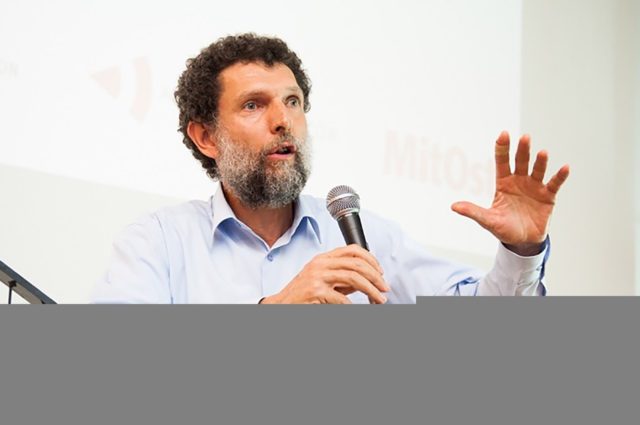Turkish President Recep Tayyip Erdogan on Monday walked back from his threat to expel 10 Western ambassadors over their statement of support for jailed philanthropist Osman Kavala.
But the week-long standoff underscored the growing uncertainty underpinning Turkey’s relations with its closest allies 19 years into Erdogan’s dominant rule.
AFP looks at some of the factors at play in Turkey’s latest row with some of its most important trading partners.
Who is Kavala?
Erdogan accuses the Parisian-born businessman and philanthropist of seeking to destabilise Turkey.
Kavala, 64, has been in jail since October 2017 without a conviction, and was initially charged with financing anti-government demonstrations across Turkey in 2013.
The charges, denounced by Kavala as “fanciful” and denied completely, have since accumulated, and now include espionage and playing a role in a failed coup attempt against Erdogan in 2016.
To his supporters, Kavala has become one of the symbols of the Turkish government’s repression of civil society, which accelerated after the failed putsch.
But rising tensions between Western capitals and Ankara risk lowering the likelihood of his release, analysts say, because any liberation would be viewed as an admission of weakness by Erdogan.
Why now?
The escalation was sparked by a rare joint statement the 10 ambassadors issued last week calling for a quick resolution to Kavala’s legal case.
Erdogan called it an unprecedented interference by foreign powers in Turkey’s domestic affairs.
But Erdogan’s critics believe the Turkish leader — his approval ratings sagging — seized on the letter to provoke a crisis and deflect attention from the country’s growing economic woes.
Inflation has surged to nearly 20 percent, the lira is plummeting and surveys suggest Erdogan could lose the next presidential election, which must be held by June 2023.
“Erdogan is drawing on the populist playbook to distract from the real issues facing Turkey today,” said Hasni Abidi, international relations professor at the University of Geneva.
But the pro-government Yeni Safak daily blamed the escalation on Western ambassadors who acted like “colonial governors” by calling for Kavala’s release.
What was at stake?
The expulsions would have opened a wide rift within the NATO military alliance and potentially pushed Turkey closer to Russia.
The row erupted ahead of a G20 summit in Rome next weekend at which Erdogan had expected to meet US President Joe Biden, who has been openly critical of the Turkish leader’s record on human rights.
Ties between the two have been further strained by sanctions Washington slapped on Ankara for the purchase of a Russian missile defence system in 2019.
Turkey was kicked out of the F-35 fighter jet programme as a consequence.
Ankara had been hoping for the return of $1.4 billion it says was spent on the US programme.
Turkey would like to see some of that the money to be compensated through the US delivery of less advanced F-16 fighter planes.
But Russia is in talks to deliver a second batch of its S-400 missiles to Turkey, which would harden Washington’s line on Ankara.
What are the economic risks?
Turkey’s economy has been the main victim the diplomatic tensions, with foreign investment already far lower today than in Erdogan’s early years of power.
The call for Kavala’s release was signed by the ambassadors of Germany, Ankara’s closest single trading partner, and the Netherlands, which accounted for more than 15 percent of investments in Turkey last year.
Six of the ambassadors come from members of the European Union, which Turkey has been in talks to join for most of the past 20 years.
The EU absorbed more than 41 percent of Turkish exports and accounted for 33.4 percent of its imports last year.
The escalation has already hurt the lira, which has lost a quarter of its value against the dollar since the start of the year.
A fragile economy poses political risks for Erdogan, whose electoral successes over two decades were fuelled in part by the prosperity and development his government brought to Turkey after a financial crisis in 2001.

COMMENTS
Please let us know if you're having issues with commenting.